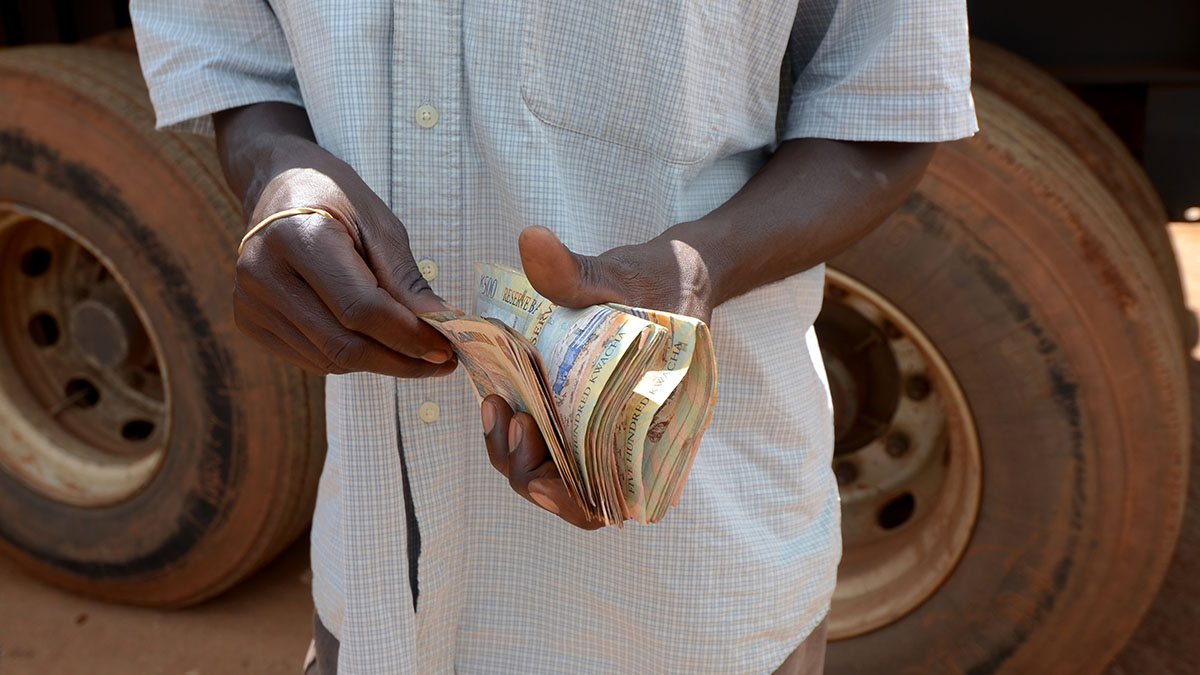The project and related guidelines will support interested African countries to assess the types of illicit financial flows relevant to their national contexts.
© Africa
UNCTAD and the UN Economic Commission for Africa (UNECA) are implementing a project on defining, estimating and disseminating statistics on illicit financial flows (IFFs) in Africa, in partnership with the UN Office on Drugs and Crime (UNODC).
The project focuses on developing a statistical methodology to estimate IFFs. It saw the birth of a conceptual framework in October 2020, and now UNCTAD is finalizing methodological guidelines to measure tax and commercial IFFs.
The project and related guidelines will support interested African countries to assess the types of IFFs relevant to their national contexts. Countries will be invited to pilot test one or two methods to measure different IFFs, such as those related to trade misinvoicing, profit shifting, offshore wealth or criminal activities like smuggling.
Over $1 trillion lost in Africa
A report of the High-Level Panel on IFFs estimated Africa’s loss in IFFs at more than $1 trillion over the last 50 years, a sum nearly equivalent to all the official development assistance the continent received during the same period. UNCTAD’s Economic Development in Africa Report 2020 noted that Africa could gain $89 billion annually by curbing IFFs. The continent’s resource-rich countries are particularly more prone to IFFs.
UNCTAD and UNODC, custodians of SDG indicator 16.4.1 on quantifying the “total value of inward and outward IFFs”, are responsible for developing a methodology to measure IFFs in the context of the 2030 Agenda for Sustainable Development.
With the conceptual framework and methodological guidelines in place, the pilot testing of IFFs’ measurement is starting in African countries. The UNCTAD and UNECA project aims to build countries’ statistical capacity to report on IFFs as part of the indicator framework for the 2030 Agenda.
An online workshop took place on 16 February, with 120 participants from Africa, to introduce the new conceptual framework and methods and invite African countries to express their interest in joining the pilot testing of selected methods. Participants heard the results of pioneering work carried out in Brazil, Italy, Mexico and South Africa.
Why data and statistics matter
"High-quality data are crucial for estimating the size and type of IFFs entering and leaving a country," said UNCTAD’s chief statistician Steve MacFeely. He added that national statistical offices, in a coordinating role, and statistical experts of the customs and revenue offices, central banks, tax authorities, ministries of finance, financial intelligence units and other agencies with relevant data and/or expertise on IFFs, will be key actors in the exercise.
The measurement of IFFs requires cross-sectional collaboration of many national authorities that have the data and knowledge about different types of IFFs according to their mandates.
The pilots will contribute to the refinement of methods to measure SDG indicator 16.4.1 on IFFs. The project seeks to empower UN member states to estimate IFFs in line with national priorities by supporting the statistical system to acquire the technical knowledge to launch the statistical measurement of IFFs.
The pilots will offer a possibility for official statisticians to inform policy action and strategies related to IFFs – an area where the consequences for development are severe and reliable data and statistics remain scarce.
According to UNCTAD’s Economic Development in Africa Report 2020, countries with high IFFs spend on average 25% less on health and 58% less on education compared with countries with low IFFs, which implies significant re-distributional effects of IFFs.
At the same time, the pilot testing of the methods to measure IFFs will also start in selected countries in Asia and the Pacific, jointly with the UN Economic and Social Commission for Asia and the Pacific.
Preliminary results of pilots in Latin America
A regional technical meeting on the measurement of IFFs related to criminal activities in Mexico City launched the first wave of pilot testing of IFFs measurement in several Latin American countries in 2019.
The pilots focused on illicit markets such as drugs, trafficking in persons, smuggling of migrants and illegal mining, and took place in Columbia, Ecuador, Mexico and Peru.
Preliminary estimates of IFFs from illegal activities in Mexico were presented during the workshop on 16 February. One of the challenges of the pilot in Mexico was adapting the methodology to the regional and national context, as well as to specific markets.
The second challenge was developing a procedure to analyse the scarce and often confidential data held by different national authorities. But the pilot testing also brought the possibility to identify and address data gaps, increase analytical capacity to understand how the markets work and raise awareness on the importance of public policies in addressing IFFs.
The estimation of IFFs and the generation of knowledge about the related flows and markets can also contribute to the quality of key economic statistics, including GDP and other indicators that rely on the exhaustiveness of national accounts.

